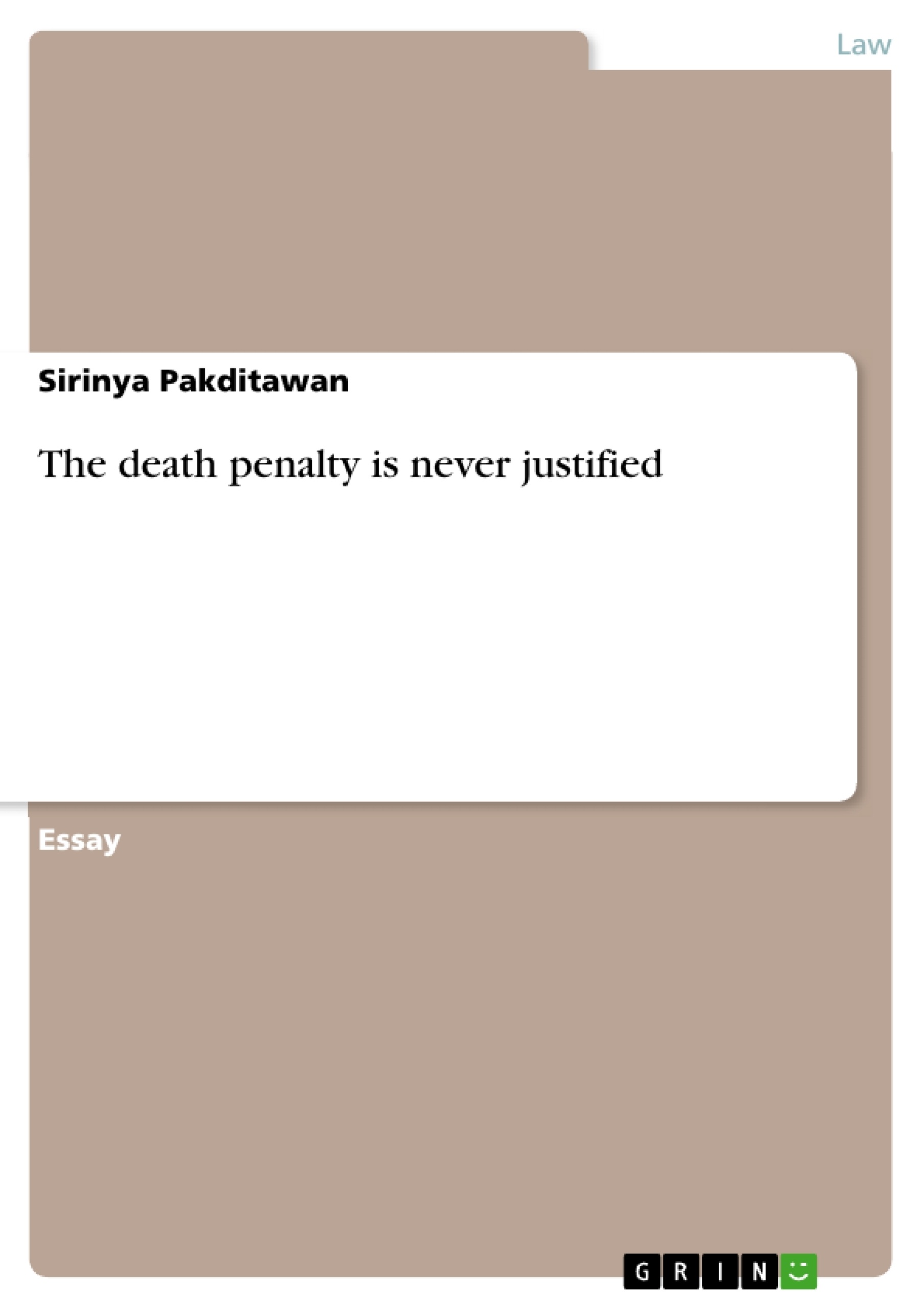Nowadays, at the beginning of the twenty-first century, the death penalty has been abolished in every Western European country. Only in the United States can each state still choose whether or not to implement capital punishment. As a result of rising crime rates, the pro-hanging lobby is growing stronger in modern Western society.
Many people want the death penalty to be restored because they demand retribution, retaliation and vengeance for particularly offensive and nefarious crimes. However, the death penalty remains a capital offence against fundamental human rights. Thus, capital punishment can never be justified if one intends to maintain the basic principles of civilisation and promote respect for human rights.
Inhaltsverzeichnis (Table of Contents)
- Introduction
- The Death Penalty: A Violation of Human Rights
- Inhumane Treatment and Cruel Punishment
- A Symptom of a Culture of Violence
- The Death Penalty: A System Fraught with Arbitrariness and Discrimination
- Racism and Discrimination
- Gender Bias
- The Death Penalty: A Flawed System Prone to Mistakes
- Miscarriages of Justice
- Innocent Victims of Capital Punishment
- The Death Penalty: An Ineffective Deterrent
- High Crime Rates in Countries with Capital Punishment
- High Costs of Execution
- Conclusion
Zielsetzung und Themenschwerpunkte (Objectives and Key Themes)
The essay aims to argue that the death penalty is never justified, presenting a strong case against capital punishment by outlining various ethical, legal, and practical reasons. The main objectives are to demonstrate the violation of fundamental human rights, the potential for discrimination and mistakes, and the ineffectiveness of capital punishment as a deterrent. Key themes include:- Human Rights
- Justice and Fairness
- Discrimination
- Effectiveness of Punishment
- Moral and Ethical Progress
Zusammenfassung der Kapitel (Chapter Summaries)
The essay begins by establishing the context of the death penalty in modern Western society, noting its abolition in most of Europe but its continued existence in the United States. It then outlines the core argument against capital punishment: it constitutes a violation of fundamental human rights by subjecting condemned individuals to inhumane and cruel treatment, demonstrating disregard for their inherent dignity and right to life. The essay further argues that the death penalty reflects a culture of violence and hinders moral progress. The next section explores the inherent arbitrariness and potential for discrimination within the death penalty system, particularly highlighting racial disparities in sentencing and the influence of factors like gender and socioeconomic status. It emphasizes the risk of wrongful executions due to flaws in the legal system, citing instances of innocent individuals sentenced to death. Finally, the essay addresses the ineffectiveness of the death penalty as a deterrent, pointing out that crime rates remain high in countries where capital punishment is in force. It also highlights the significant costs associated with executions, arguing that capital punishment is both ineffective and wasteful.Schlüsselwörter (Keywords)
This essay focuses on the death penalty, human rights, justice, discrimination, arbitrariness, mistakes, deterrence, and the ethical and practical implications of capital punishment.Frequently Asked Questions
Why is the death penalty considered a violation of human rights?
It subjects individuals to inhumane treatment and disregards the inherent dignity and fundamental right to life.
Does the death penalty act as an effective deterrent?
No, crime rates often remain high in countries that still use capital punishment, suggesting it is not an effective deterrent.
What are the risks of mistakes in capital punishment?
The legal system is prone to flaws, leading to miscarriages of justice where innocent victims may be executed.
Is there discrimination in the application of the death penalty?
Yes, the system is often fraught with arbitrariness, including racial disparities, gender bias, and socioeconomic discrimination.
Where is the death penalty still implemented in the West?
While abolished in Western Europe, individual states in the United States can still choose to implement it.
- Citation du texte
- Sirinya Pakditawan (Auteur), 2001, The death penalty is never justified, Munich, GRIN Verlag, https://www.grin.com/document/186204



